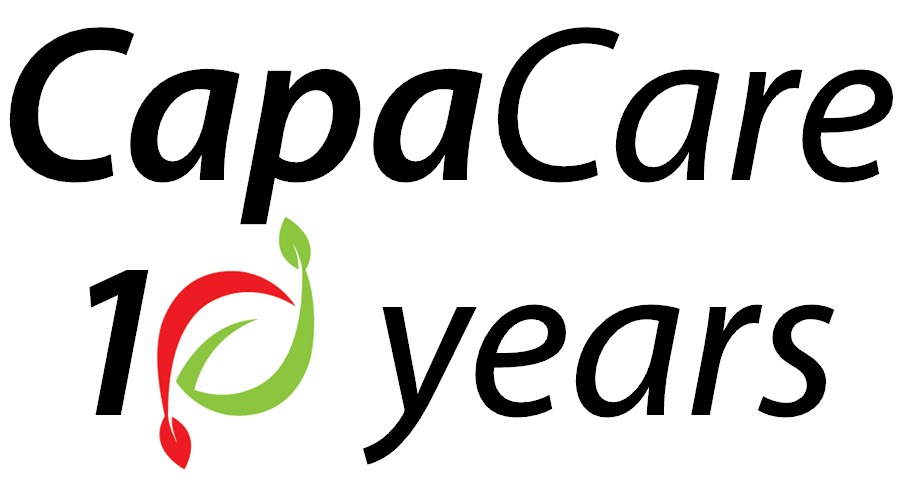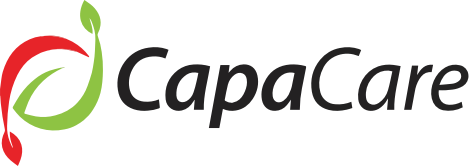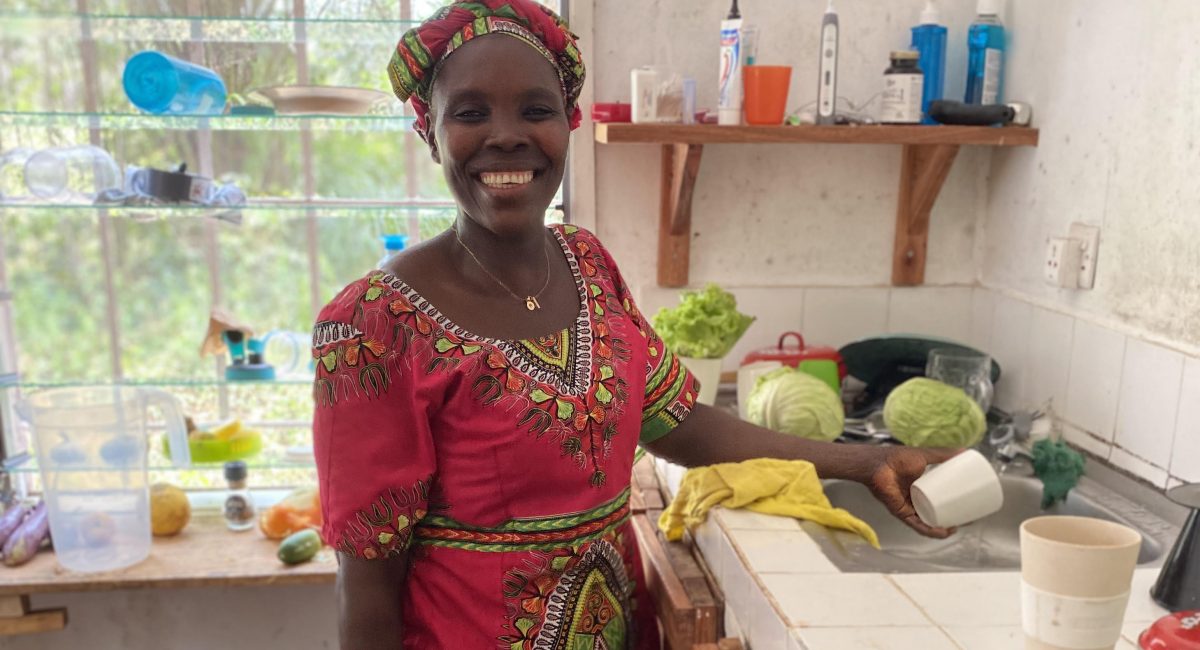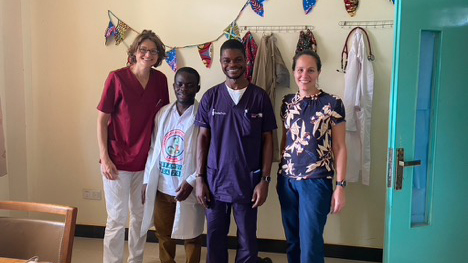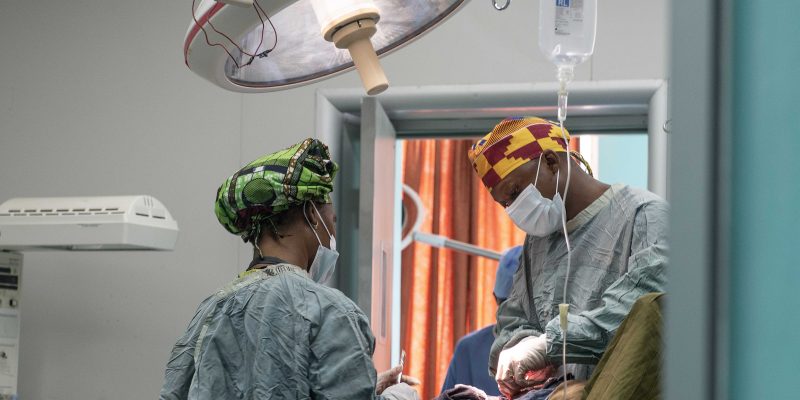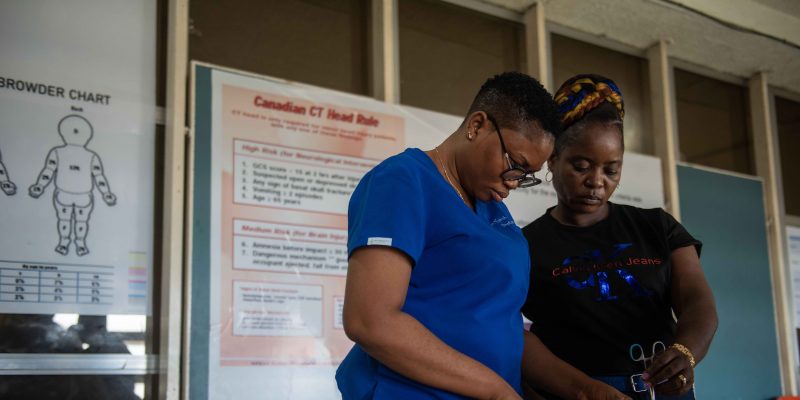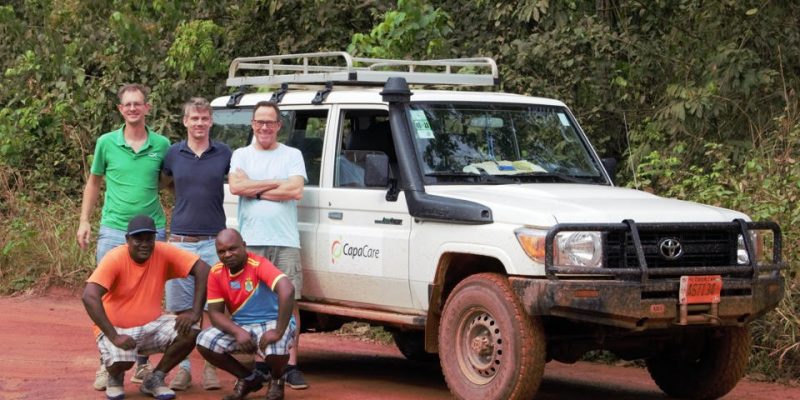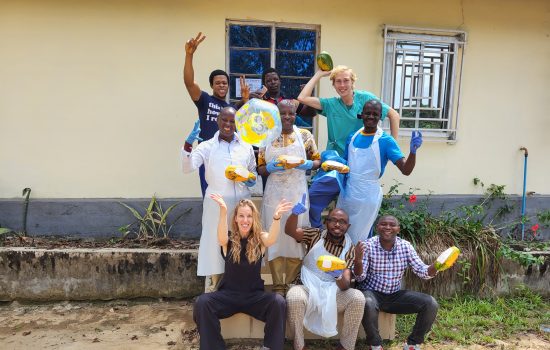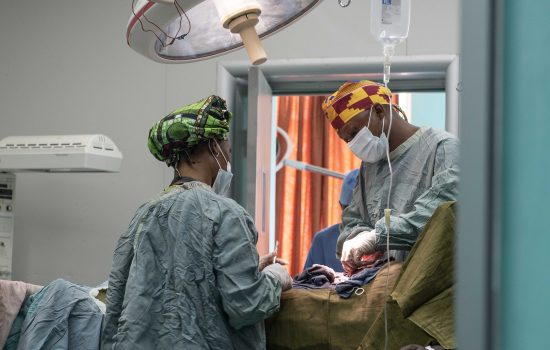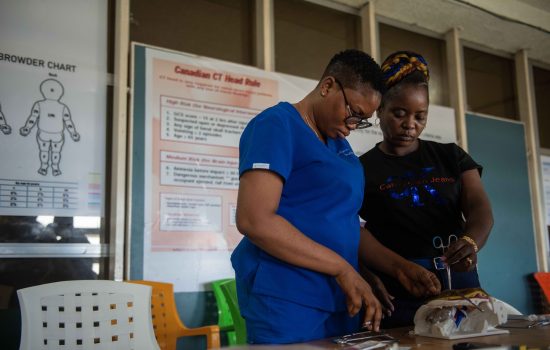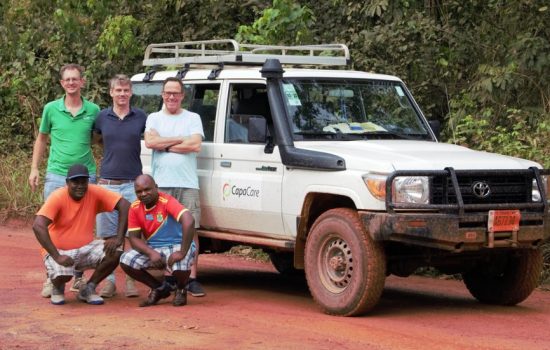It has been ten years since the first students started their journey in the Surgical Training Programme (STP) in Sierra Leone. During 2021, we are reflecting on the last ten years by interviewing two people every month that have played an important role in the organisation and programme. Although many people involved in CapaCare have a medical background, the organisation also needs non-medical staff for diverse tasks. Two of those who are carrying out these non-medical tasks are Alpha A. Kargbo and Rugiatu Koroma. This month we interviewed them about their roles, how they have seen CapaCare grown and the future of the organisation.
What are your former and current roles within CapaCare?
Alpha: I have been working for CapaCare since 2015. At first I was a driver. I was driving the local management team, the Programme Coordinator and our guests through the country and even joined a mission to Liberia. Right now, I am the Logistics Assistant, which means that I am supporting Francis Vandy with the organisation of all the logistics of CapaCare.
Rugi: I am the house keeper of the CapaCare house in Masanga. It is my responsibility to ensure that the CapaCare house is in a good condition and that our guests have a good stay in Masanga. I clean the house, I cook for our guests and do the laundry.
Both of you have been working for CapaCare for a long time now. How have you seen the organisation grow over the last couple of years?
Rugi: One of the major changes is of course that we have now many graduated students working in hospitals all over the country.
Alpha: Another growth is that the amount of students that start the programme each year. At first, there were three or four students in each batch. Right now, each time we set out an advertisement for the programme we have over 30 replies for only seven to eight places. This tells me that young health care workers are really interested in participating in the Surgical Training Programme of CapaCare. Another change that I noticed is that people are more curious about CapaCare than before. People hear good stories about the organisation and are interested to learn more about it when we are for example on supervision in other district hospitals.
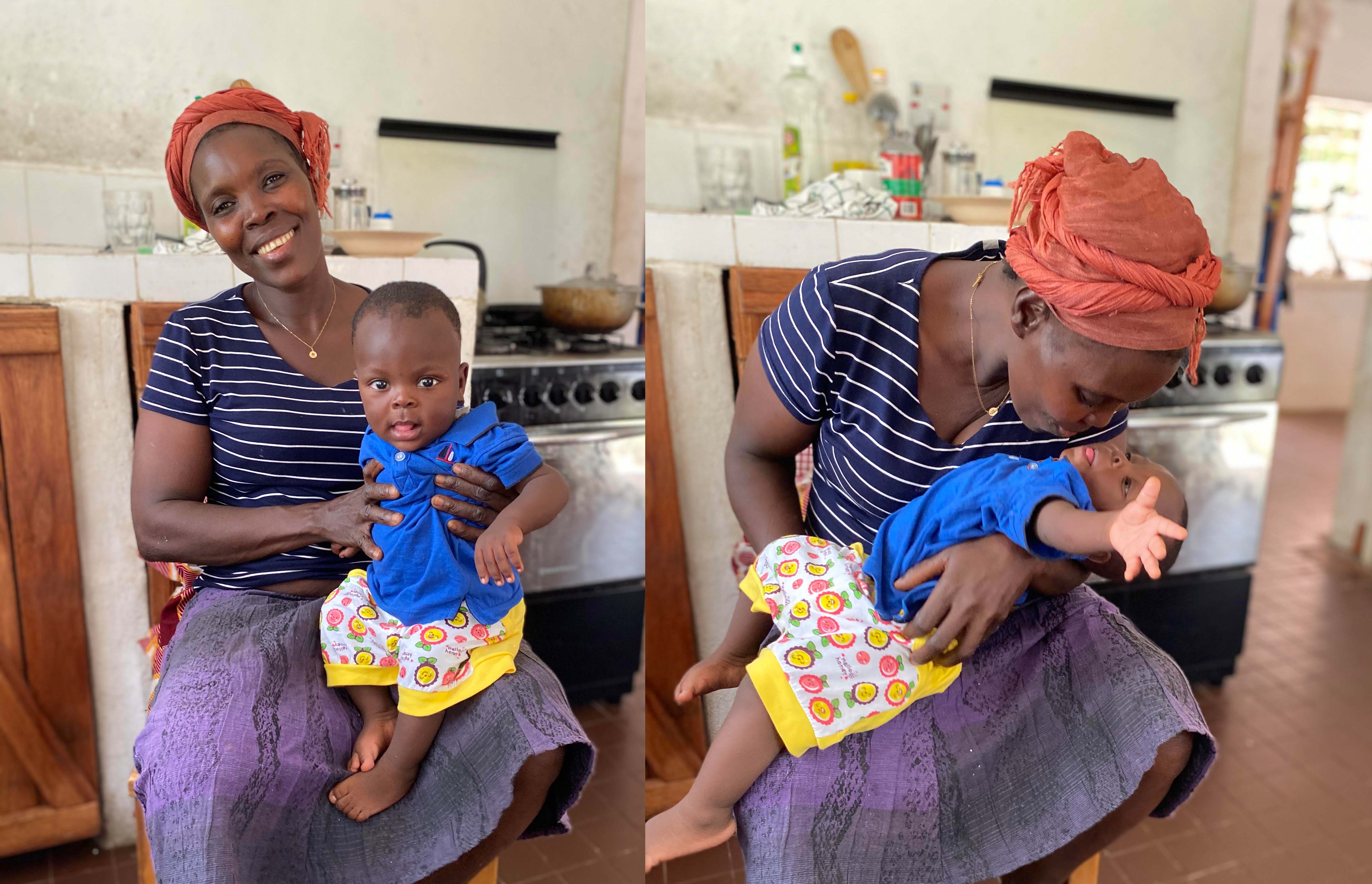
Ruggi with baby Abdul Karim
You have been working together with many different people, also with people from outside of Sierra Leone. How is it to work together with people with a different cultural background?
Alpha: It has been a good experience to work together with so many different people. A collaboration between people from various places gives us opportunities to share experiences with each other. It often leads to valuable relations and friendships, which means that CapaCare feels like a family. I often stay in good contact with the foreign people of CapaCare after they return to their own country.
Rugi: CapaCare feels like an extended family for me. It has been a nice experience with all the international people such as Dr. Håkon, Annemarie and Dr. Bart. Now I have met so many people from outside of Sierra Leone, and I now know how to approach them and how to collaborate. Over the years I have encountered many specialists and doctors from Europe. One person is easier than the other. Everybody has their own mind; some are not used to living or being around many people. Mostly when people arrive, they don’t eat plenty, they have to get used to the heat and also tell me what they like, then after a few days they eat a lot!
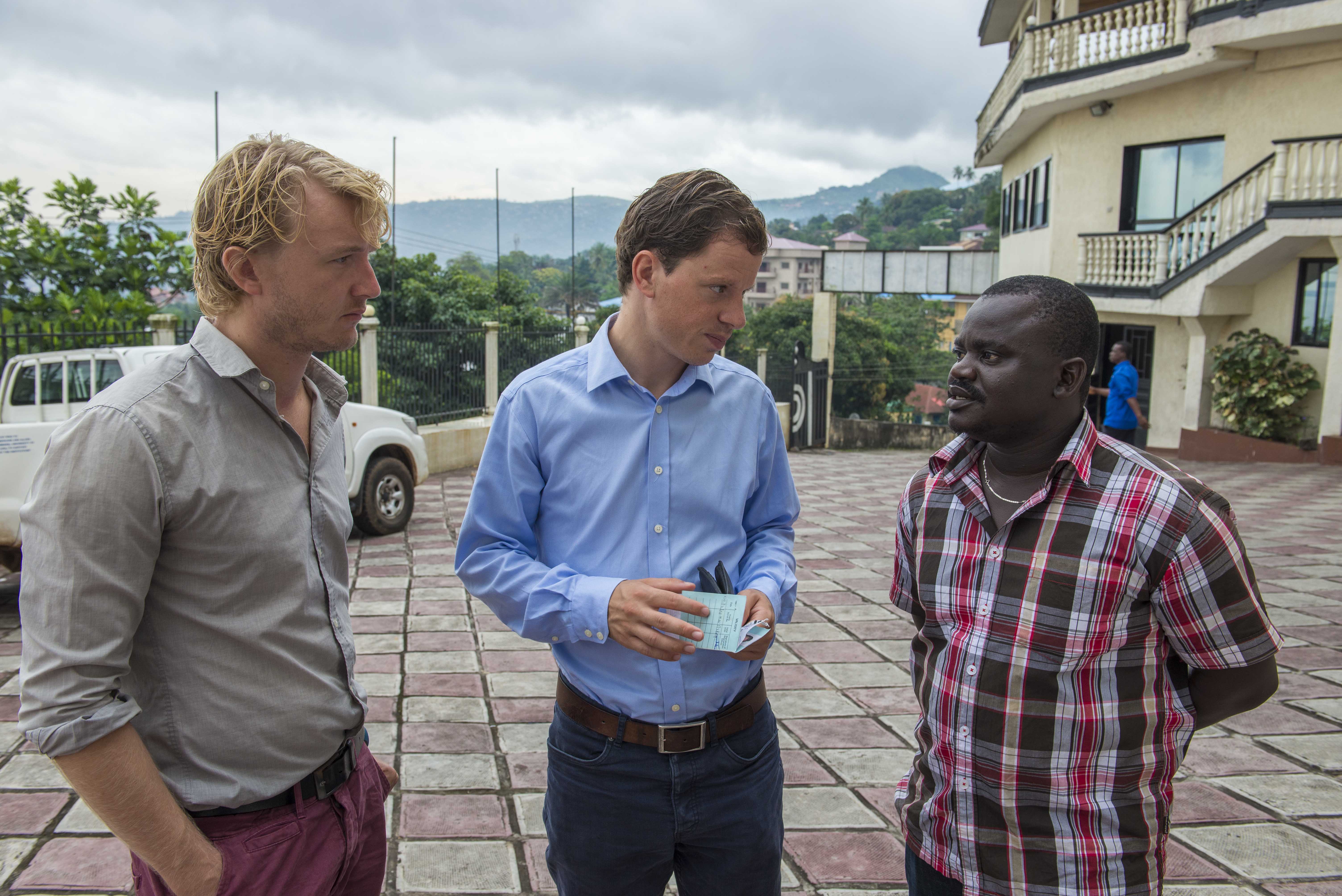
Alpha i Freetown with two former Program Managers f.l. Daniel van Leerdam and the late Wouter Nolet
Are there any personal stories related to CapaCare that you would like to share?
Alpha: A friend of my once had a hernia in the groin. Because of that, he was not able to work and take care of his family. I took him to Masanga to have his hernia assessed by one of the students of the programme. With financial help from me he was able to undergo the needed surgery. The operation was well executed, and my friend did never have any problems of the hernia anymore. This friend still sometimes flatters me when we meet, because he is always thankful for the existence of the programme and my contribution to his operation.
Rugi: I was born in Masanga on 15th September 1980. I know exactly because my father was the registrar for the leprosy hospital land and kept all our documents very precisely. My parents met each other in Masanga, they were both here because they were leprosy patients and this was the only place in the country they could be.
There was a big stigma about leprosy patients so no family would ever visit it us. It was not easy growing up, because there was not enough food and money. We were at home with six children, and I was the second one. At the end of the month my father was paid with a bag of rice but there was no money for me to go to secondary school.
When the war started and Masanga was attacked for the second time the rebels burned down our house, the whole family ran away to different places. I went to Waterloo, to a refugee camp. It was very hard because I had nobody who could care for me. Luckily, I met a very good guy who helped me with food, he became my first husband and we got two children. Unfortunately, he died during an explosion in Freetown. By that time, I returned back to Masanga with my two children in 2007. I found my second husband in Masanga and we had two boys together, he was a miner. Unfortunately, he died last year. My third husband is a driver for a timber company, it is very hard work, together we have our little baby Abdul Karim, he will be the last one.
In 2008 a volunteer from Denmark came to prepare soap for the hospital. I knew how to make soap, so we worked for one year in the soap factory. Later when the soap business was subsiding I assisted in the canteen and in the agriculture project. Also a group of doctors came from ‘World Doctors’ and I cooked for them. I was recommended to CapaCare for cooking, washing and taking care of the CapaCare house.
For me CapaCare is important because this job enables me to take care of my family, brothers and sisters. The organisation is a big opportunity and blessing for me.
Alpha: As I explained I came in the organisation as a driver. Besides this I got more responsibilities within CapaCare over time, I was able to work on my Bachelor’s degree in Administration. CapaCare does not only capacitate the students, but also the staff of the programme.
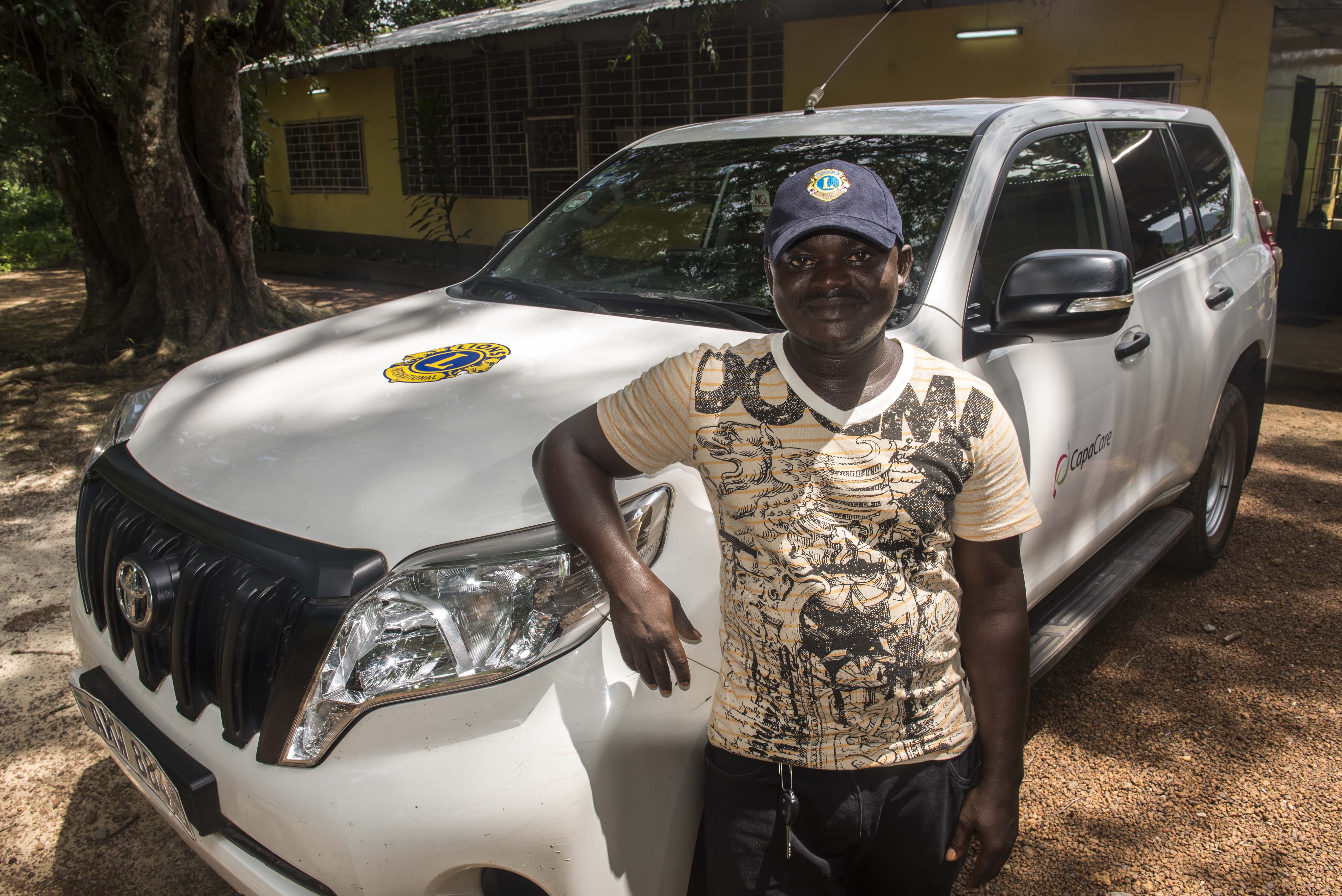
Alpha with the trusted Land Cruiser available thanks to contributions from Lions Club
We have had 10 years of CapaCare now. How do you see the future of the programme?
Alpha: I expect great things, in particular for Sierra Leone as a country. Countrywide, the recognition of the programme and the (graduated) students is rapidly growing. Where students were at first not always allowed to fully participate in the work in a hospital, they now sometimes tell me that they have too much work to do. This tells me that the students and our graduates are getting more embedded in the health care system than before. A nice example of this occurred once during a visit to the Princess Christian Maternity Hospital in Freetown. We asked to see Surgical Assistant Community Health Officer (SACHO) Jawara, but Dr A. P. Koroma demanded us to address the SACHO as ‘Doctor Jawara’, because he was always doing a really good job. This shows me that the recognition of the graduates by other health care workers is improving and that something in the mentality of Sierra Leonean health care workers has changed. I hope that CapaCare and its students are able to amplify this recognition.
Rugi: I know we can expect more good things. I hope that God will bless each one of us, so that CapaCare stays here for a long time. Personally, I hope to continue working for CapaCare for a long time, I like to take care of the visitors. Also, I hope my oldest daughter will become a doctor, she does really well in school and is eager to go to university. I am happy to see she gets the opportunities that I did not get. Maybe she will return to Masanga as a doctor. I want to thank CapaCare for the cooperation, I want to say a special thanks to Annemarie for being so patient with me.
